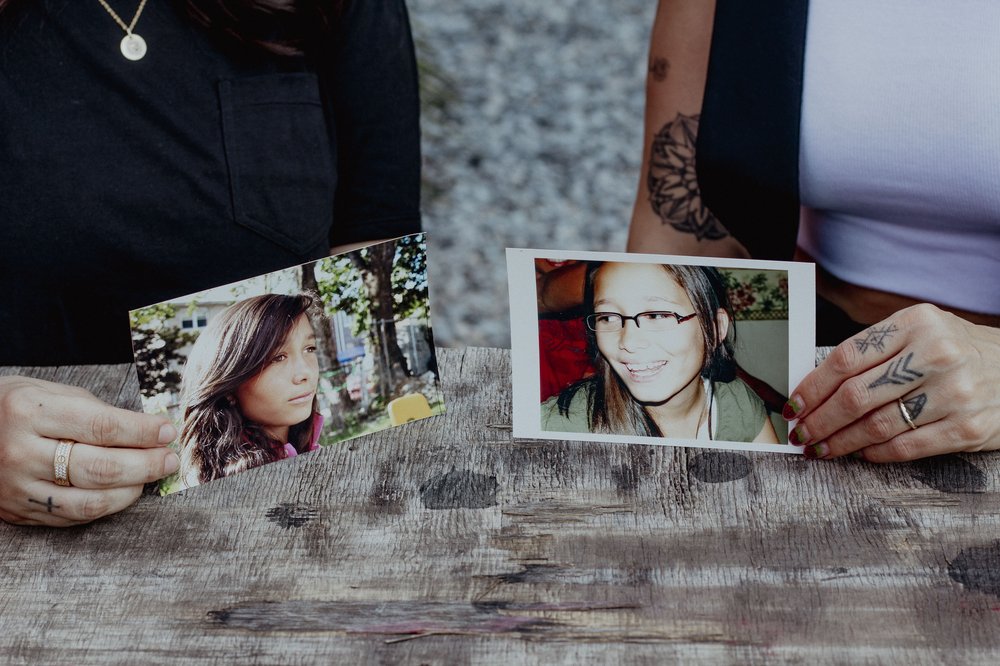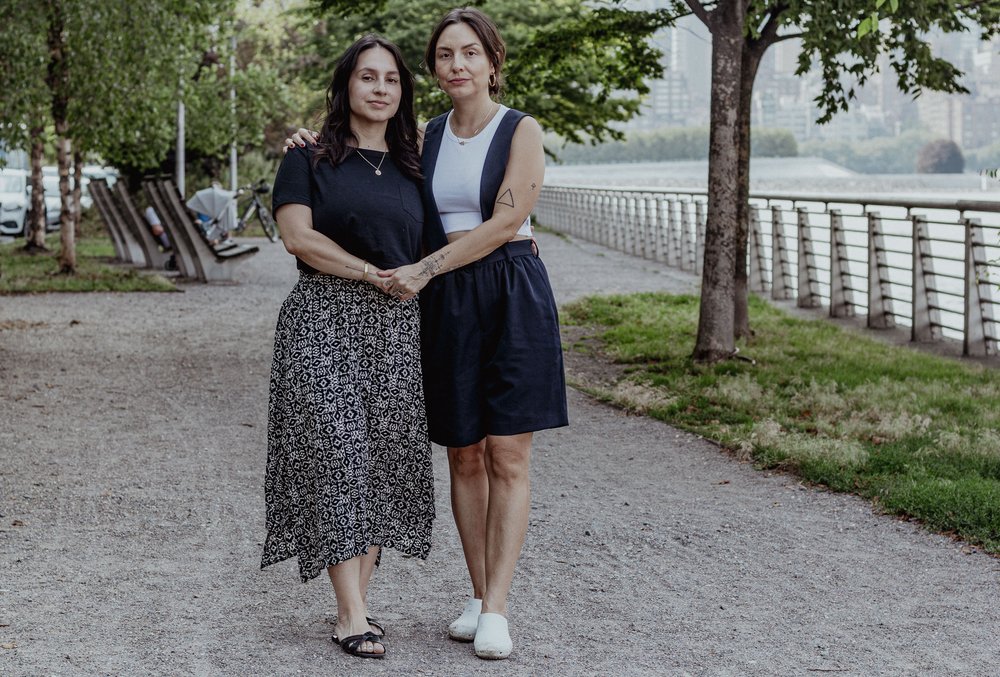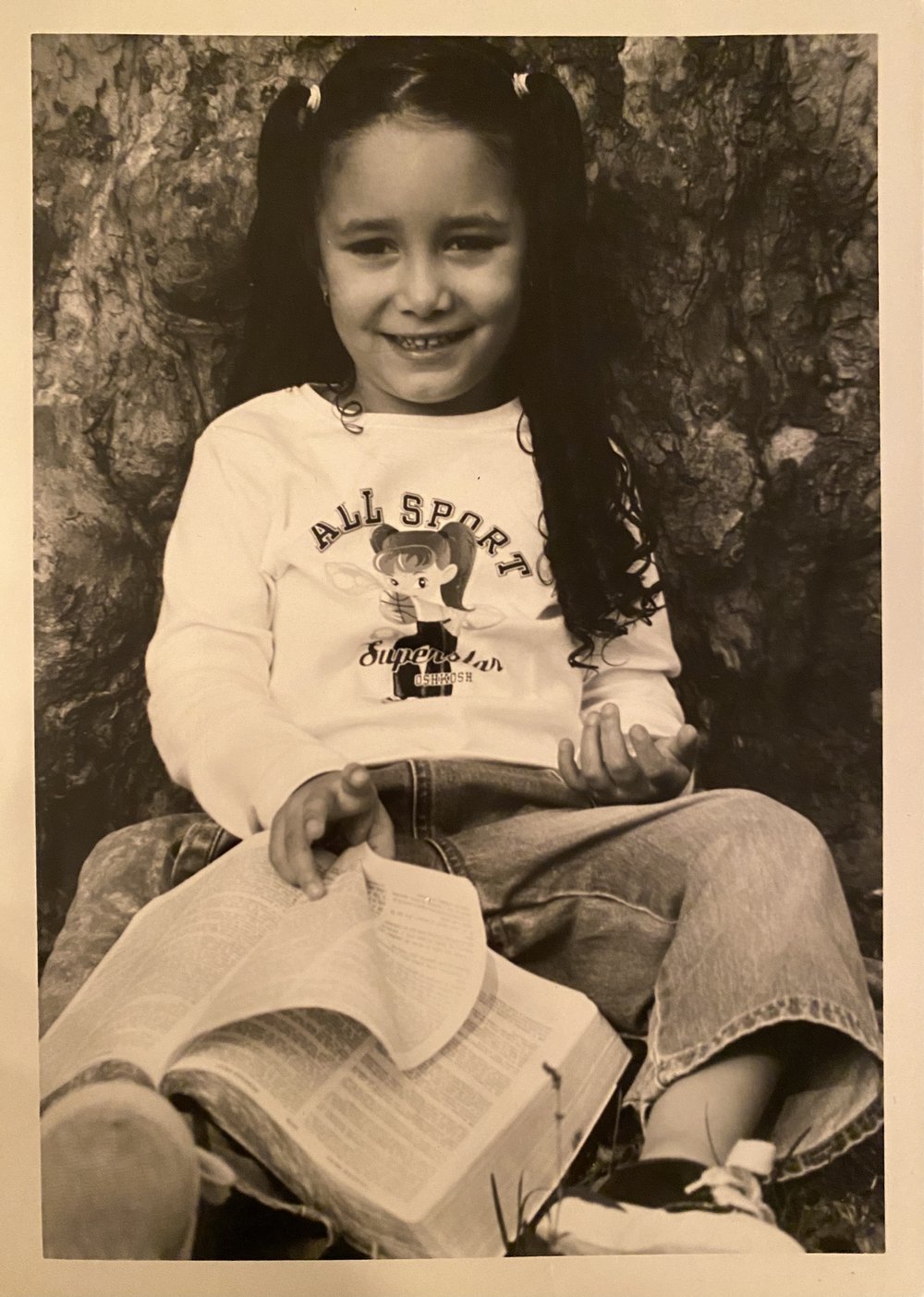A 23-year-old OD’d at the Brooklyn Mirage in 2021. It wasn’t reported to regulators.
Sept. 18, 2023, 5:01 a.m.
A Gothamist investigation shows state liquor regulators were never notified of the death and that NYPD claims about the extent of its investigation contradict the venue’s account of events.

Hours before Genesis Reynoso’s death, she sent a note to an acquaintance — a man operating a food truck outside the Brooklyn Mirage, a music venue in industrial East Williamsburg. She offered to pay him for “E” and “molly,” different forms of the drug known as MDMA.
“Porfa you would save our lives,” she wrote in a series of Instagram messages obtained by Gothamist.
“I got you. But I’m not there yet,” he wrote back. “Ill b inside mirage in an hr. Or maybe in 45.”
By the end of the night, Reynoso would be transported from the Mirage by ambulance for an apparent drug overdose. Medical records show she was admitted to the hospital between 1 and 2 a.m. on Oct. 4, 2021. She went into cardiac arrest four different times over the coming hours, which robbed her of her brain function. At 7:02 that evening, she was pronounced dead. She was just 23 years old.
At the time, both the Mirage and Avant Gardner, the larger event space that it’s a part of, were under intense scrutiny from the State Liquor Authority that was threatening the venue's future. The regulator — which controls the licenses that allow bars, restaurants and entertainment venues that sell alcohol — had raised myriad concerns over the previous year about what it called “rampant” drug use at the venue, including two prior overdose deaths in 2017 and 2018.
Avant Gardner was fined $100,000, was required to hire an independent monitor to oversee its operations and was warned that future missteps could lead to its liquor license being pulled.
But the State Liquor Authority wasn’t made aware of Reynoso’s death at the time – in part because no one called 911 that night. Instead, she was transported to the hospital by a private ambulance the Mirage had on standby, which left no paper trail for state liquor regulators. The independent monitor didn’t start its work for another month. And liquor regulators said they only learned of Reynoso’s case in March of this year, when Gothamist first inquired about it.
The only reason any police report exists at all is because Reynoso's aunt, Cynthia Angel, went to the local precinct and filed one. In the report, the NYPD noted that the medical examiner deemed her death “suspicious”.
Angel recorded several of her phone conversations with the lead detective assigned to the case. In the calls, the detective is heard saying he had obtained security footage from Avant Gardner of the food truck operator — the man they believe Reynoso was messaging — entering the Mirage. That contradicts a statement from the venue, which told Gothamist that police never asked about the alleged dealer and never suggested the alleged sale happened inside the Mirage itself.
Now, the Brooklyn Mirage is facing a new round of safety concerns after a series of events this summer that captured national headlines. In June and July, two men were found dead in the nearby Newtown Creek after attending or trying to attend events at the venue. Then came the Electric Zoo festival — whose owners also own the Mirage — where crowds rushed the gates earlier this month, with police accusing organizers of overselling the festival’s capacity by more than 7,000 tickets.

As the second anniversary of Reynoso’s death approaches, her family members said they’re frustrated by what they see as a lack of accountability on the part of Avant Gardner for its use of private ambulances to handle overdose cases, and on the part of the NYPD, which they believe should have investigated her death more vigorously.
“She mattered,” said Angel, who shared text and Instagram messages from Reynoso’s phone with Gothamist, along with medical records, audio recordings and other documentation that helped piece together the timeline of events that led to Reynoso’s death.
“It just felt so sad to me. This young Latina, who's not rich — no one cares. Like, no one is doing anything about it.”
“Her future was now ready to start”
In the hours before Reynoso overdosed, Angel was perusing Instagram at home as she struggled to fall asleep. She noticed Reynoso was posting selfie videos at the Brooklyn Mirage, which is co-owned by a party promoter named Juergen “Billy” Bildstein and is known for electronic dance music.
“I was like, oh, that's weird,” Angel said. “Because that's not really her thing.”
Angel knew her niece's taste in music well. She was close with Reynoso as she grew up in a tight knit family in Queens. Reynoso, the daughter of Colombian immigrants, was born in Sunnyside in 1998, when Angel and her sister Jennifer were teenagers.
“We're her young aunties, so ... we always wanted to babysit her,” Angel said, referring to herself and Jennifer. “We always wanted to take her out with us with the stroller.”
As Reynoso got older, Angel said their relationship became more sisterly. Reynoso had recently moved back to New York after attending high school and college in North Carolina, where her father is an associate pastor of a multicultural megachurch’s Latino campus in Charlotte.
Reynoso moved into an apartment in East Williamsburg and got a job at a restaurant.
"She was so excited to be in New York,” Jennifer said. “This is where it was at for her, back home, and her future was now ready to start.”

The story of her final hours played out in messages and photos on her phone, which Angel was able to unlock with the help of Reynoso’s sister, who knew her passcode.
“My husband and I, we just started going through the phone and taking screenshots and, and saving as much as we can to try to piece together a timeline of the events from that night,” Cyntha said.
Around 8 p.m. on Oct. 3, 2021, Reynoso and her friends bought three to five pills from two men in a car near her apartment, according to what her friends told an NYPD detective. But they didn't seem to have any effect on them; Reynoso later wrote in one message that she was “sober.”
At 8:54 p.m., she picked up a conversation her friend had started with the food truck operator, according to Reynoso’s Instagram messages. After she offered to pay him for “E or molly,” he asked if she was OK waiting until he got inside the Mirage later that night. He had to attend to his food truck outside for the next hour or so.
“Babe lmk bc someone else is asking for it,” he wrote. “I dnt mind saving it for u if you’re serious.”
At 9:24 p.m., Reynoso responded with an agreement to buy two grams of what the food truck operator said was “m” — a reference to a form of the drug known as “molly” — at $40 per gram.
“There was just such a clear digital trail of everything."
Cynthia Angel, Genesis Reynoso's aunt
They arranged to meet inside the Mirage. At 10:25 p.m., he sent a message saying: “Im inside.” He said he was near the bathrooms by “the main stage.” Soon after, Reynoso asked what he was wearing because she couldn’t see him right away.
Less than 10 minutes later, at 10:47 p.m., she sent him $80 via ApplePay, according to a receipt visible in their text messages. A photograph from Reynoso’s phone, timestamped at 10:52 p.m., shows someone’s hands pouring a white powder into a water bottle from a piece of aluminum foil.
Gothamist has not been able to reach the man who exchanged messages with Reynoso. He has not been charged with a crime and police have not identified him as a suspect. The food truck continues to operate, according to an Instagram account associated with it, although the posts suggest it has stopped selling food outside the Mirage.
About an hour-and-a-half after the photo was taken, Reynoso’s friends noticed something was wrong, according to the account they gave to Reynoso’s family. Her eyes began to cross and she didn’t recognize the people she was with, according to Angel.
A private ambulance at the venue operated by a company known as Ambulnz, took her to Wyckoff Heights Medical Center in Brooklyn between 1 and 2 a.m., according to medical records. Her parents in Charlotte said hospital staff contacted them around 4 a.m.
“They asked me if she had health problems. I said no,” Reynoso’s mother, Lluvisa Segura, said in a phone interview. “So they said, don't worry, she will be fine, and that we can go visit her in the morning.”
That afternoon, on Oct. 4, 2021, as Reynoso lay unconscious in the intensive care unit, the food truck operator texted her. “You okay? Heard you had a bad trip,” he wrote. “Worried me sick.”
Two-and-a-half hours later, she was dead.
The medical examiner determined her cause of death to be the toxic effects of MDA — an ecstasy-like drug — and methamphetamine. It made no mention of MDMA, also known as ecstasy or molly, the drug that her messages show she’d agreed to purchase
The private ambulance loophole
Private ambulances have been a feature outside high-capacity nightclubs in New York City for decades. Having them on standby allows club patrons to be quickly transported to the hospital in case of emergency without having to wait for city EMTs to arrive.
Under state regulations, an on-site ambulance is required for events "likely to attract 5,000 or more people at any one time."
The Mirage goes a step further, having an “onsite medical team and ambulance parked at the venue for all hours of operation at every Brooklyn Mirage event,” according to an open letter the company posted to its website last month in response to recent safety concerns. That includes events that do not exceed the 5,000-person mark.
But venue owners have long faced questions about the practice because it allows them to potentially escape scrutiny from authorities by bypassing the 911 system. In the early 2000s, then-Mayor Rudy Giuliani’s administration — known for its ruthless crackdown on the city's nightlife venues — raised concerns about the practice, telling The New York Times that it made it difficult for city health officials to track how many people are going to the hospital from particular venues.
The reliance on private ambulances — if not accompanied with a 911 call — also appears to contradict the city’s own guidelines for the nightlife industry, which were drafted by the NYPD and the NYC Hospitality Alliance and published as a “Best Practices for Nightlife Establishments.”
Among its recommendations: “911 must be called to report medical emergencies such as drug overdoses.”
"This is gonna keep happening."
Jamie Reynoso, Genesis' father
More than 1,600 people were treated at Avant Gardner for intoxication or an “altered mental state” — a condition often tied to drug use — from 2018 to mid-2022, according to records obtained by Gothamist through the State Liquor Authority and public records requests. At least 88 people were transported to local hospitals during the same period, which includes a period when the venue was closed for a year-and-a-half due to the COVID-19 pandemic.
Ambulnz, the company that transported Reynoso to Wyckoff Heights Medical Center, is a division of the for-profit company known as DocGo, which has come under scrutiny itself in recent months over its treatment of migrants under a $432 million contract it has with New York City to house people arriving in the city.
A DocGo spokesperson did not answer Gothamist’s questions about Reynoso’s transport.

Reynoso's family questions whether she would have received better care from a city EMT. They also question why she wasn’t administered Narcan, a drug used for opioid overdoses, though the medical examiner later determined she was not under the influence of opioids.
"Why do you have a private ambulance? I think it's obvious,” Angel said. “If it's reported by the NYPD or the EMT, and there's too many of these cases going on, then their liquor license will be in jeopardy.”
In response to questions from Gothamist, Avant Gardner denied taking any steps to conceal Reynoso’s death from the State Liquor Authority, with which it had been feuding with for years. The company issued a statement saying its “top priority is ensuring a safe experience for our guests, our staff and our artists.”
“To keep people safe, we meet and exceed all mandated guidelines and regularly review and upgrade our security protocols, including our large number of security personnel both inside and outside the venue, including security guards, traffic guards, live surveillance camera operators, on-site retired NYPD/FDNY safety consultants, and on-site paramedics,” the statement said.
At the time of Reynoso’s death in 2021, the State Liquor Authority had known of the two other overdoses connected to Avant Gardner: a 41-year-old man in 2017, and a 21-year-old woman in 2018. But the authority was not made aware of Reynoso’s death until earlier this year, a year-and-a-half after it occurred, according to spokesperson William Crowley.
Conflicting accounts
Reynoso’s family is also haunted by lingering, unanswered questions about why her alleged dealer has never been charged with a crime.
To Angel, the evidence she'd collected was compelling. There were the text messages and Instagram DMs, laying out the sale inside the Mirage. There was the Apple Pay receipt, and the time-stamped photo showing the powder going into the water bottle. The phone number Reynoso had been texting matched the number on the food truck’s social media accounts.
The day after Reynoso’s death, Angel took Reynoso’s phone to the NYPD’s 90th Precinct in Brooklyn, a beige, brick building located a mile-and-a-half away from the concert space where her niece had overdosed.
“I got him,” she thought to herself.
“There was just such a clear digital trail of everything that I thought it would be in no time that this guy would get arrested,” she said. “But that never ended up happening.”

New York state does not have a specific “death by dealer” law, in which someone who sold drugs can be charged for the death of a person who overdoses. But the federal government does. The U.S. attorney’s office used it to prosecute those connected to the 2021 overdose death of actor Michael K. Williams.
Getting a conviction on that charge requires a “bucketload of evidence,” according to Catherine Christian, a private attorney who spent more than 30 years as a prosecutor in the Manhattan district attorney’s office.
Prosecutors would have to be able to point to a particular drug sold by a particular dealer that directly led to a person’s death, she said. That could prove to be difficult in Reynoso’s case, since she was believed to have taken a separate pill prior to arriving at the Mirage on the night in question.
“You have to prove that the drug that someone purchased was the actual drug that they took and caused their death,” Christian said.
NYPD narcotics detective Pedro Abreu raised some of those concerns when he spoke with Angel by phone in the weeks after Reynoso’s death, noting that the NYPD was unable to recover the water bottle or the powder she consumed. In those calls, Abreu spoke favorably of Avant Gardner’s security personnel, saying they have a background in analyzing video as former NYPD officers and “did a good job putting together this guy [the food truck operator] coming in.” But he said finding video of the actual sale inside the venue was difficult to pin down, in part because the strobe lights in the venue “distort the image”.
However, those statements directly contrast with Avant Gardner’s response to questions from Gothamist about the incident. The company said that, while it cooperated with the NYPD’s investigation – which included providing statements from the venue’s paramedics and surveillance footage of Reynoso being loaded into the ambulance – it claims the case detective never asked about the food truck operator or alerted management that he may have sold drugs within the venue.
Abreu left the NYPD in April 2022, six months after Reynoso’s death, according to records maintained by the Civilian Complaint Review Board. Angel said the NYPD never made her aware of his departure. Abreu could not be reached for comment.
The NYPD declined to answer specific questions about Reynoso’s case, saying the investigation remains “active and ongoing.”
Jamie Reynoso, Reynoso’s father, said he’s grown disillusioned with the process.
“Definitely, I’m disappointed in [the police], I’m disappointed with the [venue], because of the negligence,” he said. “I mean, this is gonna keep happening, happening, happening.”
Clarification: This story was updated after publication to clarify that events in New York exceeding 5,000 attendees are required to have an ambulance on site.
StructValue([('url', 'https://gothamist.com/news/concertgoers-demand-changes-outside-brooklyn-mirage-after-recent-deaths-kidnapping'), ('title', 'Concertgoers demand changes outside Brooklyn Mirage after recent deaths, kidnapping'), ('thumbnail', None)]) StructValue([('url', 'https://gothamist.com/news/avant-gardner-owners-were-behind-electric-zoo-fiasco-mayor-adams-promises-response'), ('title', 'Avant Gardner owners were behind Electric Zoo fiasco, Mayor Adams promises response'), ('thumbnail', None)]) StructValue([('url', 'https://gothamist.com/news/avant-gardner-brooklyn-venue-liquor-license'), ('title', 'Mayor Adams’ office set meeting with troubled Brooklyn venue and governor’s aide over its liquor license'), ('thumbnail', None)]) StructValue([('url', 'https://gothamist.com/news/mayor-adams-defends-involvement-with-troubled-brooklyn-venue-thats-drawn-scrutiny-from-the-state'), ('title', 'Mayor Adams defends involvement with troubled Brooklyn venue that’s drawn scrutiny from the state'), ('thumbnail', None)])